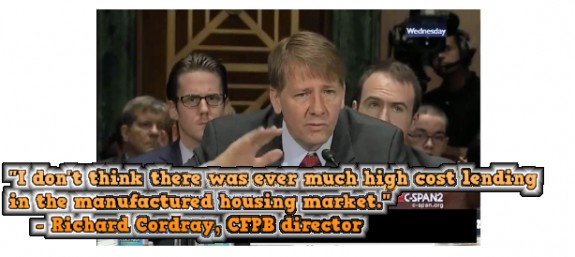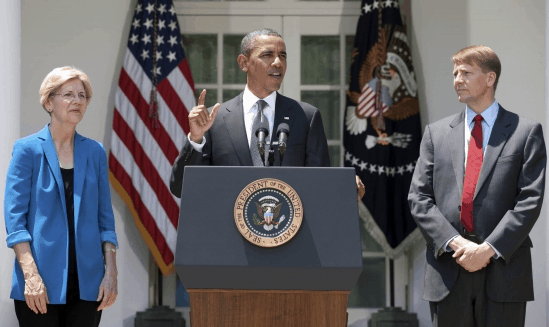
A major blow was delivered to those who were working to defend the Consumer Financial Protection Bureau (CFPB) last week, when a federal appeals court denied their motions.
According to Pay Before, the same three-judge panel of the U.S. Court of Appeals for the D.C. Circuit that determined the CFPB structure was unconstitutional in October 2016, denied appeals in the PHH Corp. vs. Consumer Financial Protection Bureau case.
In the decision, which was covered by the Daily Business News here, the court determined the CFPB is controlled by a “single, unaccountable, unchecked director, Richard Cordray, who can only be removed for just-cause, which poses the risk of arbitrary decision-making and abuse of power compared to a multimember independent agency.”

The circuit court ultimately ruled that the CFPB could continue operating, but that the director can now be replaced at will.
Recent motions filed by U.S. Senator Sherrod Brown (D-Ohio) and U.S. Rep. Maxine Waters (D-Calif.), argued that Congress wanted a single director for the agency, because lawmakers who drafted the Dodd-Frank Act, which established the CFPB, “understood that the nation needed a regulator that could respond quickly and effectively to new threats to consumers … and it knew that the CFPB’s effectiveness could be hampered by the delay and gridlock to which commissions are susceptible.”

Sixteen state attorney generals and the District of Columbia also filed a motion, defending the CFPB in its current incarnation.
“As the representatives of millions of citizens across the country, the state attorneys general have used their express statutory authority to bring civil actions to enforce consumer financial protection laws and to pursue regulatory actions in coordination with the CFPB to protect consumers against unfair, deceptive and abusive financial practices,” the motion said.
“The current ruling, if permitted to stand, will undermine the power of the state attorneys general to effectively protect consumers against abuse in the consumer finance industry.”
Public interest groups, including the Americans for Financial Reform, Center for Responsible Lending, Leadership Conference on Civil and Human Rights, and Maeve Brown, chairperson of the CFPB’s consumer advisory board also filed a joint motion in support of the CFPB, which they decided to do after President Trump put the organization, and Dodd-Frank, in the crosshairs for major changes.
“President Trump has voiced strong opposition to the Dodd-Frank reforms that created the CFPB,” according to the group’s motion.

President Trump started the process of dismantling Dodd-Frank in an executive order signed on February 3rd.
Following the court’s October panel decision that the CFPB structure is unconstitutional, the bureau filed a petition in November for a rehearing before the entire appellate court.
Had the circuit court granted the motions last week to intervene, the groups would have been able to submit briefs supporting the CFPB’s structure in the event of a rehearing of the case.

According to one attorney, that would have been unprecedented.
“In my entire career, I have never heard of someone trying to intervene at the Court of Appeals level related to a petition for rehearing,” said Alan S. Kaplinsky, partner, Ballard Spahr LLP.
PHH sued CFPB Director Richard Cordray after the agency issued an order against the lender for $109 million over an alleged kickback scheme around reinsurance payments. The CFPB accused PHH of referring customers to mortgage insurers who, in turn, bought reinsurance from one of PHH’s units.
The Daily Business News will continue to follow developments around the CFPB and update this story as information becomes available. ##
(Image credits are as shown above.)

Submitted by RC Williams to the Daily Business News for MHProNews.

























